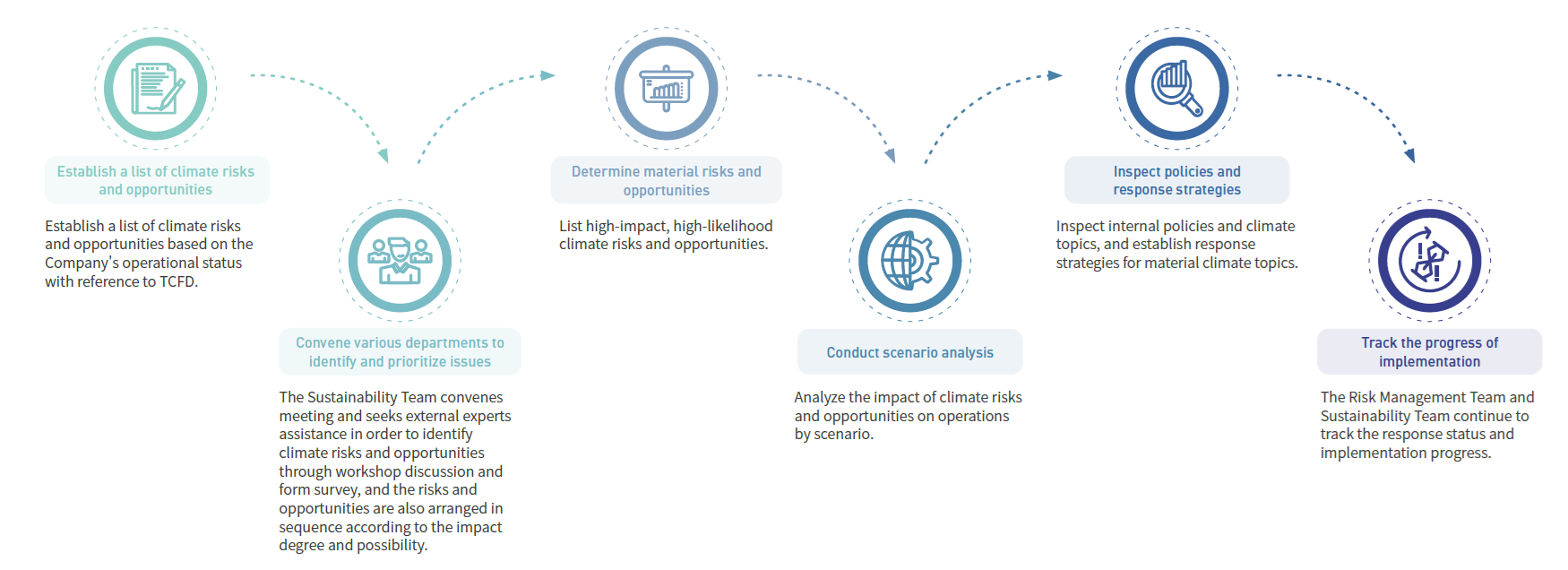Environmental Sustainability 返回

Huaku Development follows relevant environmental laws and regulations to properly protect the environment and shall endeavor to promote a sustainable environment when engaging in business operations and internal management. In response to the climate change impact and regulations that are becoming more severe and tougher, carbon reduction has become the priority goal for companies. Huaku Development identifies the future transformation risk of greenhouse gas emissions according to the TCFD framework and implements management on potential impacts.
Since 2020, Huaku Development has adopted autonomous inventory inspection on the carbon emissions generated from the daily operation, and implements improvement and enhancement of the internal environment, equipment and employee environmental awareness according to the Company’s “Energy Saving, Carbon Reduction and Environmental Management Policy”, in order to achieve objective of effective management via various channels and methods. Furthermore, we have begun implementing ISO 14064-1:2018 Greenhouse Gas Accounting in 2023 to obtain a more comprehensive and accurate understanding of our organization’s carbon emissions data, thereby accelerating the reduction of carbon emissions.
Climate Change Risk Assessment and Response
Huaku Development follows the TCFD framework to assess climate-related risks and opportunities across four core elements: governance, strategy, risk management, and metrics & targets. We identify climate risks and opportunities through the following approaches and incorporate the results into our overall risk management policies. The Sustainability Committee and Risk Management Committee also regularly review and monitor the implementation of risk management by each department. For more details on risk assessments and response measures, please refer to the 2024 Sustainability Report.
Management Procedures
The Management Department will formulate, promote and maintain the relevant environmental management programs and encourage all employees to take practical actions to participate in the program, in order to implement energy saving and carbon reduction, and effectively enhance the effectiveness of the use of the company's resources. The specific measures are as follows:
| Item | Measures |
| Energy and carbon reduction and greenhouse gas emissions |
|
| Reduce water consumption |
|
| Cut down the paper consumption and waste volume |
|
| Use FSC certified paper |
|
Status of Accomplishment and Future Goals
Huaku Development has implemented concrete management measures to reduce energy and resource consumption year by year. Regarding greenhouse gas emissions, since indirect emissions are the primary source in the head office’s inventory, the company set a target to reduce electricity consumption by 0.5% annually. In 2024, electricity consumption (indirect energy use) decreased by 0.68% compared to 2023. For water consumption, the company set a target to reduce water use per NT$1 million revenue by 1% annually, achieving a 31.57% reduction in 2024 compared to 2023. For more environmental information, please refer to the 2024 Sustainability Report.
| Item | 2023 | 2024 | |
| GHG emissions | Category 1 (Direct Emissions) | 10.8614 ton | 10.5322 ton |
| Category 2 (Energy Indirect Emissions) | 55.0557 ton | 54.5701 ton | |
| Category 4 (Other Indirect Emissions) | 13.3268 ton | 13.2933 ton | |
| Total | 79.244 ton | 78.396 ton | |
| Energy consumption | 400.40 GJ | 397.68 GJ | |
| Water consumption | 1,362 ton | 932 ton | |
| Total weight of waste | 17.26 ton | 20.55 ton | |



